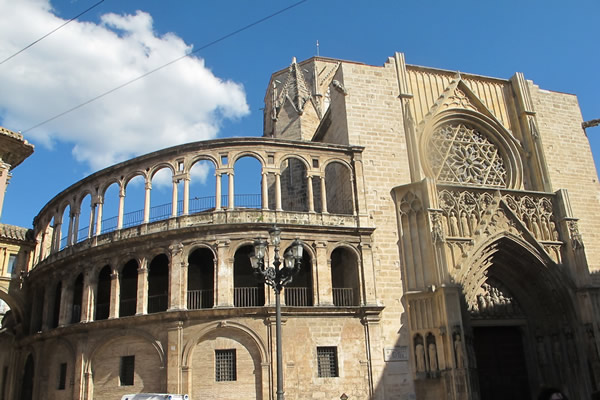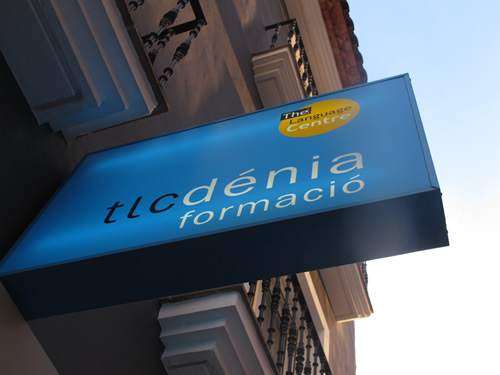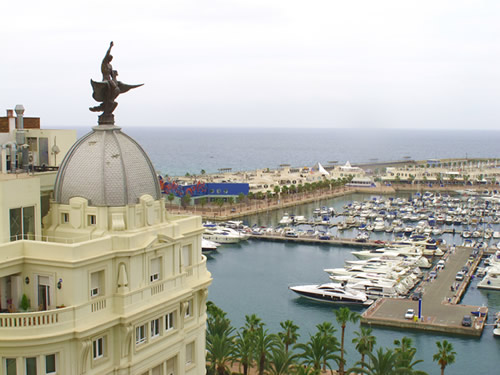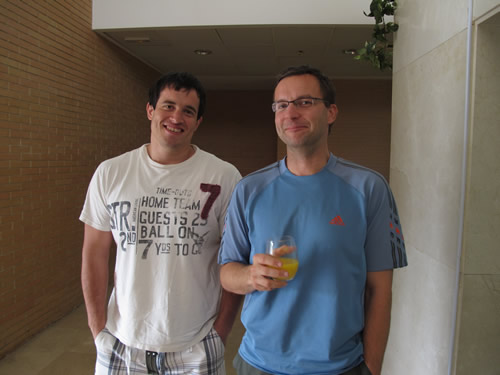Learn Spanish in Valencia, Spain
A Culturally Rich Location to Study
Article and photos by Vicki Salemi
Resources updated 7/24/2023 by Transitions Abroad
 |
| Study Spanish in historic Valencia. |
Want to really learn Spanish? If you are seeking to study in Spain and become one of the thousands of international students (the average is between 150,000 and 220,000 students annually), and you are only thinking about Madrid or Barcelona as locations for an entire semester, you may be missing the boat.
The Valencia region is host to several schools, including Valencia, Denia, Castellon, and Alicante. Here, you can learn the language, experience the local culture, and commit to an education ranging from a few weeks to programs that run year-round.
Selecting a Language School in Valencia
When exploring schools in Spain, it is important to look for those with accreditation as a first step in your Spanish journey. For instance, AMEELE was created in 2002 to bring together leading schools in the Valencia region to commit to high standards and put a stamp on their quality of education. All schools are members of FEDELE (Spanish Federation of Associations of Spanish Schools for Foreigners). Each school must be in operation for at least two years and accredited by the Cervantes Institute to join AMEELE. The Institute was established in 1991 by the Spanish government to promote Spanish culture and language. Furthermore, schools that are accredited by this institute prepare students to sit for the DELE (Diploma for Spanish as a Foreign Language) exam. (See our directory of Spanish language schools in Spain for more information and selections.)
 |
| The Language Centre in Denia. |
Spanish Language Immersion
Once you have selected a few schools, it is important to note that their schedules and study methods may vary. Colegio Internacional Alicante, an average day in the classroom includes grammar, conversation, and cultural studies. And according to Isabel Armada, head of students in Alicante, the learning pays off. “They’re such quick learners. Someone who has not spoken Spanish before can understand a conversation, go to the hotel, ask for a room, and become immersed in the language.”
While many schools organize "field trips" — including museums, beaches, water sports, and wine tastings — a core element of the immersion experience is the optional but recommended homestay. Armada notes, “All the families treat students like members of their families. It’s Spanish life: Experience a home-cooked meal.” As for the cost? Two weeks of intense learning in Alicante plus a shared apartment will cost approximately 400 euros; a homestay will cost about 850 euros with a family.
 |
| A view of the port in Alicante. |
The Students Speak
For Brendon Reyes of Rochester, deciding to study at Don Quijote in Valencia was his choice — despite others advising him against it. “People told me not to go here because everyone speaks Valenciano. Well, everyone speaks Spanish here. It’s not an obstacle, and I really like the city. The metro works very well, and you’re right near the beach.”
Ana Maria of the regional tourist board from Valencia agrees. Although students may instantly think of big cities like Madrid or Barcelona when studying in Spain, Valencia and its nearby towns technically provide the best of both worlds. “Others who've been there prefer to come to Valencia, which isn't as big as Barcelona. It's nice for a weekend to hire a car or go by train."
Jan Eichmann, a Costa de Valencia student from Germany, concurs. “There’s a mixture of old style and modern living here.” While Jan stayed for four weeks in an apartment with three other students, she chose the region to become fully immersed in the language without having too many distractions during the week.
Anita Kover, a student from Hungary, indicates her roommates were a highlight of her Spanish experience. “We did everything to get the most out of the experience. We rented bikes and did bike tours. We spoke Spanish on the weekends; it was so much fun!” In addition to the cultural experience and becoming immersed in the Spanish way of life, she also expanded her horizons. After all, her flatmates were from Germany, Austria, and Italy. “I definitely improved my Spanish skills when I was here. I’m looking for a job in France (I speak four languages), but learning this language will be an asset in job interviews.”
Essentially, once the language barrier is conquered anything is possible. Just take it from Alena Arzumanyn from Russia. Currently attending Caxton College in Valencia for the past two years, she points out that her Spanish family does not speak any English, and upon her arrival, she couldn’t speak Spanish!
Although the Valencia region provides many options with a small-town feel, it’s important to remember the primary reason to study abroad: Learning. “If you plan on missing classes, don’t bother coming,” notes Reyes from Rochester. “If you’re going to be in school, be in school.”
 |
|
Two international students in Valencia: Brendon Reyes, an alum from the University of Rochester, and Levente Varga, from Slovakia.
|
Why Choose the Valencia Region?
Valencia is situated next to the Mediterranean Sea and is home to approximately 840,000 inhabitants. Known for its beaches and illustrious history (during the 14th and 15th centuries, it was one of the most prosperous cities in the country), students can also check out its Barrio del Carmen, the Cathedral, and landmarks such as the Quart and Serrano Towers.
The Valencia region enjoys approximately 300 days of sunshine per year, boasts paella, and has many students. Out of the international students who come to Spain each year, approximately 10-12% live and study in the Valencia region. According to Isabel Armada, a teacher in Alicante, approximately 67% of these students are of college age, ranging from 20 to 24 years.
|
Off-the-Beaten-Track Cultural Activities
Visit Museu de Fogueres in Alicante on the Costa Blanca.
Every year the annual the Hogueres celebration (aka Bonfires of Saint John), takes place in Alicante, a hallmark of the community’s heritage and tradition. The community comes together to create enormous papier-mâché floats, only to first burn them and then hose them down as part of the same procession. During the festival, one float is not burned down; it is saved and taken to the Museu de Fogueres, where it remains in perpetuity.
|
Vicki Salemi iis passionate about traveling and writing. She's traveled to twenty-three countries and has lived in Montreal and London. Vicki is the author of Big Career in the Big City and The ABC's of College Life. The Manhattanite also covers entertainment, lifestyle, and business stories and writes for a variety of outlets in America and abroad, such as The New York Post, Forbes.com, and The Sydney Morning Herald.
|
